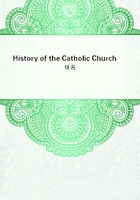
第113章
To justify this position they introduced the celebrated distinction between law and fact; that is to say, while admitting the authority of the Church to issue definite and binding decisions on doctrinal matters, they denied that she was infallible in regard to questions of fact, as for example, whether a certain proposition was contained in a certain book or what might be the meaning which the author intended to convey. On matters of fact such as these the Church might err, and the most that could be demanded of the faithful in case of such decisions was respectful silence. At the same time by means of sermons, pamphlets, and letters, by advice given to priests, and by the influence of several religious houses, notably Port Royal, the sect was gaining ground rapidly in Paris, and feeling began to run high against the Jesuits. The antipathy to the Jesuits was increased and became much more general after the appearance of the /Lettres Provinciales/ (1656-57) written by Pascal (1623-62). The writer was an exceedingly able controversialist, and in many respects a deeply religious man. From the point of view of literature the /Provincial Letters/ were in a sense a masterpiece, but they were grossly unfair to those whom they attacked.[3]
The Sorbonne offered a strong opposition to the Jansenists, as did also the bishops (1656). In the same year Alexander VII. issued the Bull, /Ad Sanctam Petri Sedem/, by which he condemned the distinction drawn between law and fact, and declared that the five propositions were to be found in /Augustinus/ and were condemned in the sense in which they were understood by the Jansenists. The Assembly of the Clergy having accepted this Bull drew up a formulary of faith based on the teaching it contained. The greater part of the Jansenists either refused entirely to subscribe to this formulary, or else subscribed only with certain reservations and restrictions. The nuns at Port Royal were most obstinate in their refusal. As they persisted in their attitude notwithstanding the prayers and entreaties of the Archbishop of Paris he was obliged reluctantly to exclude them from the sacraments. One of the principal objections urged against the acceptance of the formulary being that the Assembly of the Clergy had no authority to prescribe any such profession of faith, Alexander VII.
at the request of many of the bishops issued a new constitution, /Regiminus Apostolici/ (1664), in which he insisted that all priests secular and regular and all members of religious communities should subscribe to the anti-Jansenist formulary that he forwarded.
Most of the Jansenists refused to yield obedience even to the commands of the Pope. They were strengthened in their refusal by the fact that four of the French bishops set them a bad example by approving publicly in their pastorals the Jansenist distinction between law and fact. The Council of State promptly suppressed these pastorals (1665), and at the request of Louis XIV. Alexander VII. appointed a commission for the trial of the disobedient bishops. In the meantime, before the commission could proceed with the trial, Alexander VII. died, and was succeeded by Clement IX. (1667). Several of the French bishops addressed a joint letter to the new Pope, in which by a rather unfair use of extracts from the works of theologians they sought to excuse the attitude of their brother bishops, and at the same time they hinted to the king that the controversy was taking a course likely to be fraught with great danger to the liberties of the Gallican Church.
Louis XIV., who had been hitherto most determined in his efforts against the Jansenists, began to grow lukewarm, and the whole situation in France was fast becoming decidedly critical. Some of the French bishops offered their services as mediators. Through their intervention it was agreed that without expressly retracting their pastorals the bishops should consent to sign the formulary drawn up by the Pope, and induce the clergy to do likewise. The bishops signed the formulary, and held synods in which they secured the signatures of their clergy, but at the same time in their conversations and in their addresses they made it perfectly clear that they had done so only with the Jansenist restrictions and reservations. The announcement of their submission pure and simple was forwarded to the Pope without any reference to any conditions or qualifications, and the Pope informed the king that he was about to issue letters of reconciliation to the four bishops. Before the letters were forwarded, however, rumours began to reach Rome that all was not well, and a new investigation was ordered. Finally, in view of the very critical state of affairs it was decided that the Pope might proceed safely on the documents received from the nuncio and the mediators without reference to the information acquired from other sources. In January 1669 the letters of reconciliation were issued. The Jansenists hailed the /Clementine Peace/ as a great triumph for their party, and boasted publicly that Clement IX. had receded from the position taken up by his predecessor, by accepting the Jansenist distinction between law and fact. That their boasting was without foundation is sufficiently clear from a mere cursory examination of the papal letters. The Pope makes it perfectly evident that the letters were issued on the assumption that the bishops had subscribed without any reservation or restriction. He states expressly that he was firmly resolved to uphold the constitutions of his predecessors, and that he would never admit any restriction or reservation.
----------
[1] Calleawert, /Cornelius Jansenius d'Ypres, ses derniers moments, sa soumission/, 1893.
[2] Montlaur, /Angelique Arnauld/, 1902.
[3] Giraud, /Pascal, l'homme, l'ouevre, l'influence/, 1905.
(d) The Immaculate Conception.
Passaglia, /De Immaculat. Concept. B.V.M./, 3 vols., 1855.